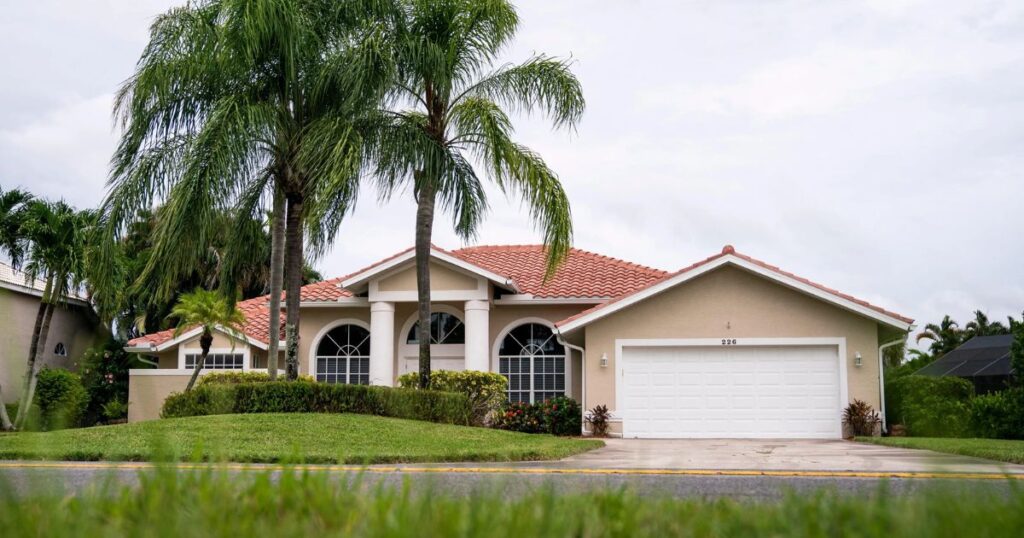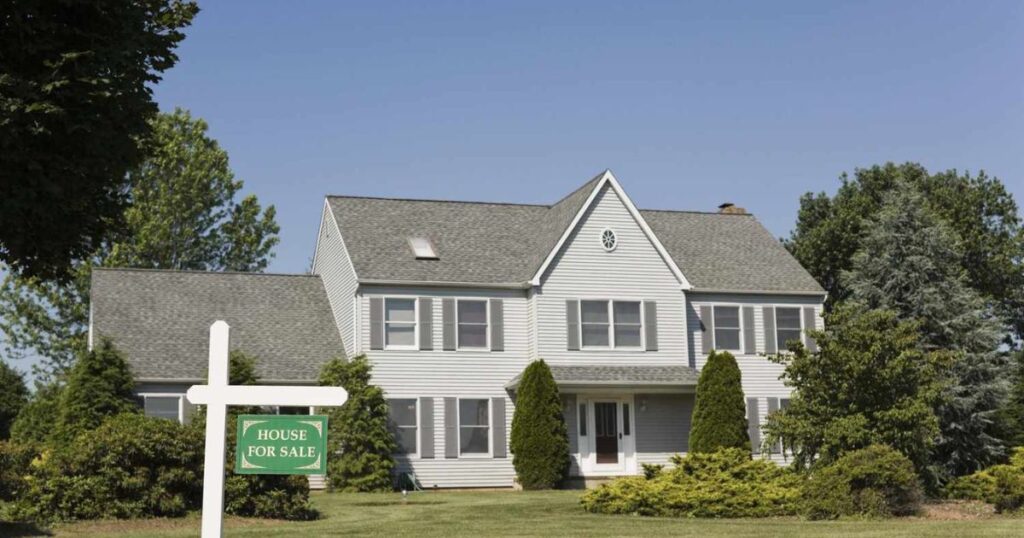Building your dream home is an exciting endeavor, but it’s crucial to understand the costs involved, especially in a state like Florida.
As we look ahead to 2024, potential homebuilders need to be prepared for fluctuating material prices, labor costs, and other expenses that can impact their overall budget.
This comprehensive guide will explore the various factors that influence the cost of building a house in Florida, providing valuable insights to help you plan accordingly.
Overview of Building a House in Florida
Before embarking on the journey of building a house in Florida, it’s essential to understand the process. Constructing a new home requires careful planning, extensive research, and collaboration with professionals who are well-versed in local laws, regulations, and building codes.
Depending on the region within Florida, there may be specific requirements or restrictions that must be addressed before breaking ground.
One of the most critical considerations is your budget. The average cost of building a house in Florida can vary significantly based on factors such as location, materials used, and the size of the property.
Conducting thorough research on local pricing for building supplies and labor costs can help you make informed decisions and potentially save money in the long run. With meticulous planning and a realistic budget, you can increase your chances of achieving your dream home without financial strain.
Average Cost to Build a House in Florida by City/Region

When it comes to building a house in Florida, location plays a crucial role in determining the overall cost. The state is vast, and construction expenses can fluctuate significantly from one city or region to another.
To provide you with a general understanding, here’s a table showcasing the average cost per square foot for building a home in various Florida cities, according to the trusted real estate source, ProMatcher:
| City | Cost Per Square Foot |
| Jacksonville | $102.20 |
| Bradenton | $108.53 |
| Fort Myers | $119.81 |
| Orlando | $120.93 |
| Fort Lauderdale / Miami | $138.34 |
As you can see, the cost per square foot ranges from approximately $100 in more affordable areas like Jacksonville to over $130 in luxury destinations like Miami.
It’s important to note that these figures serve as a rough estimate, and actual costs may vary based on several additional factors.
Factors That Influence Home Building Costs in Florida
While location is a significant determinant of building costs, there are several other factors that can impact the overall expense of constructing a house in Florida:
- Size and Layout of the Home: The larger the home and the more complex the design, the higher the construction costs will be. Intricate architectural features, multiple stories, and extensive square footage will all contribute to an increased budget.
- Building Materials Used: The type of materials chosen for construction can significantly influence the overall cost. For example, using concrete block walls may be more expensive than wood framing, while opting for high-end finishes like marble or hardwood floors can drive up the price.
- Labor Costs: The cost of skilled labor, including contractors, tradespeople, and laborers, can fluctuate based on supply and demand in a particular region. Areas with higher construction activity may have higher labor costs.
- Permits and Fees: Building permits, impact fees, and various other regulatory costs can add up quickly. These fees are typically set by local governments and can vary greatly depending on the location and scope of the project.
- Luxury Upgrades and Custom Features: Homeowners who desire luxury amenities, such as custom cabinetry, high-end appliances, swimming pools, or other custom features, should expect to pay a premium for these upgrades.
- Hiring an Architect or Custom Builder: While not mandatory, hiring an architect or a custom home builder can significantly increase the overall cost. However, their expertise can also help streamline the process and ensure the quality of the final product.
Breakdown of Major Construction Expenses
To better understand the costs involved in building a house in Florida, let’s break down some of the major expenses:
- Lumber, concrete, and other structural materials
- Windows, doors, and insulation
- Roofing materials (shingles, tiles, etc.)
- Electrical and plumbing components
- Drywall, flooring, and finishes
- General contractors
- Electricians
- Plumbers
- Carpenters
- Masons
- Painters
- Other skilled tradespeople
- Building permits
- Impact fees
- Utility hookup fees
- Inspections and certifications
- Land costs (if purchasing a lot)
- Utility hookups (water, electricity, gas)
- Appliances and fixtures
- Exterior work (driveway, landscaping)
It’s important to note that these expenses can vary significantly based on the specific project and location. Careful budgeting and thorough research can help you better understand and prepare for these costs.
Tips to Reduce Home Building Costs in Florida

While building a house in Florida can be expensive, there are several strategies you can employ to help reduce costs:
- Buy a Lot in a More Affordable Area: As we’ve seen, location plays a significant role in determining construction costs. Choosing a less expensive area can help you save money on both land and labor costs.
- Use Labor-Saving Materials and Techniques: Opting for materials and construction methods that require less labor can help lower overall costs. For example, using prefabricated components or modular construction can be more cost-effective than traditional on-site building.
- Do Some Work Yourself (If Capable): If you have the necessary skills and experience, you may be able to handle some aspects of the construction process yourself, such as painting, landscaping, or even basic carpentry work. However, it’s crucial to ensure that any work you undertake meets local building codes and regulations.
- Shop Around for the Best Material and Contractor Prices: Don’t settle for the first quote you receive. Take the time to shop around and compare prices from multiple suppliers and contractors. Negotiating can also help you secure better deals.
- Build a Smaller or Opt for Prefab Components: Reducing the overall size of your home or incorporating prefabricated components can significantly lower construction costs. Prefab components are often more affordable and can help streamline the building process.
- Look into Tax Credits or Incentive Programs: Depending on your location and the specific features of your home, you may be eligible for tax credits or other incentive programs that can help offset some of the costs associated with building a new home.
Buying vs. Building a House in Florida
When it comes to owning a home in Florida, you have two main options: buying an existing property or building a new one.
Both paths have their advantages and disadvantages, and the decision ultimately comes down to your specific needs, preferences, and budget.
Buying an Existing Home:
- Pro: Move-in ready, no construction hassle
- Pro: Established neighborhood and amenities
- Con: Limited customization options
- Con: Potential for needed renovations or repairs
Building a New Home:
- Pro: Ability to customize to your exact preferences
- Pro: New construction, no need for immediate repairs
- Con: Longer timeline and construction process
- Con: Potentially higher upfront costs
When comparing the total costs, building a new home may be more expensive initially, but it can also provide long-term benefits, such as energy efficiency, lower maintenance costs, and the ability to build equity from the start.
Conversely, buying an existing home may be more affordable upfront but may require renovations or repairs down the line.
The decision to buy or build will depend on your budget, lifestyle preferences, and long-term goals. It’s essential to carefully weigh the pros and cons of each option and seek professional advice if needed.
Frequently Asked Questions
How long does it take to build a house in Florida? The timeline for building a house in Florida can vary significantly depending on the size and complexity of the project, as well as factors like weather conditions and availability of materials and labor.
On average, the construction process can take anywhere from six months to over a year. However, it’s crucial to consult with your contractor and factor in additional time for permitting, inspections, and any potential delays.
What financing options are available for building a house in Florida? There are various financing options available for those looking to build a house in Florida:
- Traditional Mortgages: These are standard home loans that can be used to finance the construction costs.
- Home Equity Loans and Lines of Credit: If you already own a property, you may be able to leverage its equity to finance your new home construction.
- Government-Backed Loans: Programs like FHA loans, VA loans, and USDA Rural Development Loans can provide more favorable terms for eligible borrowers.
- Seller Financing: In some
Seller Financing
In some cases, the seller of the land or a builder may offer financing options, which can be worth exploring.
It’s essential to research and compare different financing options to find the one that best suits your needs and budget. Working with a reputable lender who has experience in construction loans can also be beneficial.
Are there any restrictions on building a house in Florida? Yes, there are various restrictions and regulations that must be followed when building a house in Florida.
These can vary depending on the specific location and local laws, but some common restrictions include:
- Zoning Laws: Many areas have strict zoning laws that dictate where you can build, the size and height of the structure, setbacks from property lines, and other factors.
- Building Codes: Florida has a statewide building code, as well as additional codes and regulations enforced at the local level. These codes cover everything from structural requirements to energy efficiency standards.
- Environmental Regulations: Due to Florida’s unique ecosystems and coastal regions, there may be specific regulations in place to protect wetlands, dunes, and other environmentally sensitive areas.
- Homeowners Association (HOA) Restrictions: If building in a community with an HOA, there may be additional restrictions on architectural styles, materials, and other design elements.
It’s crucial to research and understand all applicable laws, codes, and regulations before beginning construction to avoid costly delays or violations.
What type of materials are commonly used when building a house in Florida?
The choice of building materials in Florida is often influenced by factors such as durability, energy efficiency, and resistance to the state’s humid and hurricane-prone climate.
Some commonly used materials include:
- Concrete Block: Concrete masonry units (CMUs) are a popular choice for exterior walls due to their strength and resistance to high winds and moisture.
- Wood Framing: Wood framing is widely used for interior walls and roofing structures, but it may need to be treated or reinforced to withstand Florida’s climate.
- Impact-Resistant Windows and Doors: These are designed to withstand the high winds and flying debris associated with hurricanes and severe storms.
- Tile or Metal Roofing: These roofing materials are often preferred over asphalt shingles due to their durability and resistance to wind and moisture.
- Stucco or Fiber Cement Siding: These exterior finishes are low-maintenance and can withstand Florida’s harsh weather conditions.
Energy-efficient materials like insulated concrete forms (ICFs), radiant barrier insulation, and impact-resistant windows can help reduce energy costs and improve the overall performance of the home.
Conclusion
Building a house in Florida in 2024 can be a rewarding but complex endeavor. The costs involved can vary significantly based on factors such as location, size, materials, and the inclusion of custom features or luxury amenities.
By understanding the breakdown of expenses, potential homebuilders can better prepare and budget for their dream home.
It’s essential to conduct thorough research, shop around for the best prices, and consider cost-saving strategies like building in more affordable areas or incorporating prefabricated components.
Additionally, working with reputable local contractors and understanding local building codes and regulations is crucial to avoid costly delays or violations.
While the upfront costs of building a new home may be higher than buying an existing property, the long-term benefits of customization, energy efficiency, and equity buildup can make it a worthwhile investment for many.
If you’re considering building a house in Florida in 2024, start planning early, seek professional advice, and be prepared to navigate the various factors that can impact the overall cost. With careful consideration and a realistic budget, you can turn your dream home into a reality.

Ava, boasting five years in home blogging, shares expertise in domestic living. With a sharp eye and passion for details, she navigates home decor and lifestyle intricacies effortlessly.







